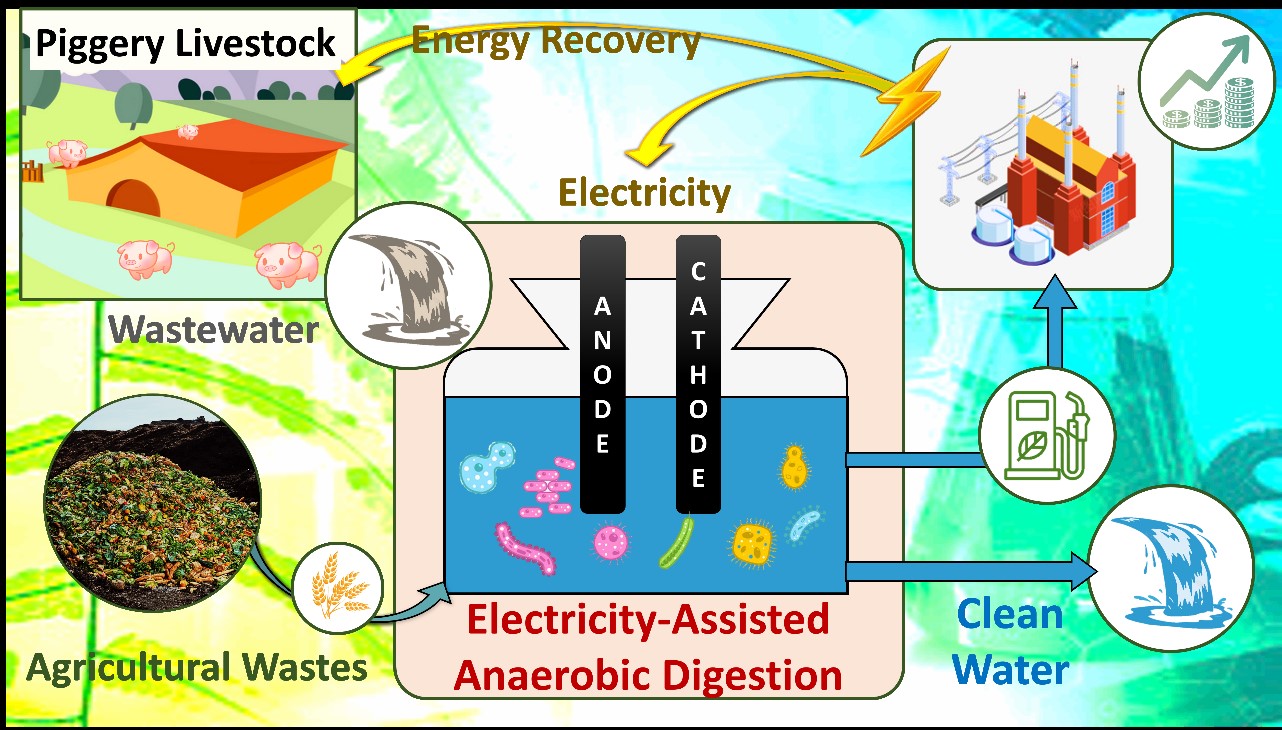Shu-Yuan Pan
Department of Bioenvironmental Systems Engineering, College of Bioresources and Agriculture
The 2019 Negative Emissions Technologies and Reliable Sequestration Report by the National Academies of USA identifies biomass energy combined with carbon capture technology as one of the key negative emission technologies. One common source of bioenergy is the use of biomass or agricultural residue to produce biogas via anerobic digestion. High-purity biogas can be directly connected to the natural gas network for heating or used to generate electricity via generators.
To improve the efficiency of conventional anaerobic digestion systems, our team has successfully developed electricity-assisted anaerobic digestion (EAAD) and tested anaerobic co-digestion using swine wastewater and rice husks. The experimental results showed that EAAD could increase biogas yield by at least 15% compared to conventional systems. Moreover, a life cycle greenhouse gas (GHG) emission analysis revealed that EAAD can effectively reduce life-cycle GHG emissions from swine wastewater treatment by 18%–22%. This contributes significantly to the value addition of agricultural surplus materials, decreases greenhouse gas emissions, and increases energy independence and security in Taiwan.
In addition to continuously optimizing EAAD to improve biogas yield, our team has developed low-energy biogas slurry purification techniques. We have also created selective electrochemical separation methods for the high-purity extraction of economically valuable resources from biogas slurry, including organic acids and nutrient salts. These innovations aim to help achieve the Ministry of Agriculture’s greenhouse gas emission reduction targets from a circular agriculture perspective.

Reducing greenhouse gas emission from a circular agriculture perspective: utilizing electricity-assisted anaerobic digestion to convert agricultural residue into sustainable low-carbon bioenergy. Image provided by Lin et al., 2023[1].
[1]Lin, H.-C., Pan, S.-Y., Lin, Y.-I., Cao, D.-T.N., 2023. Enhanced biomethane production with a low carbon footprint via anaerobic co-digestion of swine wastewater with rice husk. Science of The Total Environment 891. 10.1016/j.scitotenv.2023.164612